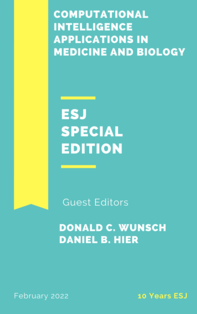A Robot Advisor to Improve Computerized Game Play
Abstract
This paper explores using a trained machine learning agent as a robot advisor for StarCraft II. A targeted visual representation of the robot advisor decision vector advised players of superior decisions in real-time. The robot advisor provided players with the best decisions given the game state and time remaining. Study subjects had to generalize a game strategy from the robot advisor recommendations to a later game round. We sought to determine whether different advice representations (1) improved performance when an advisor is available, (2) improved subsequent performance when an advisor was not available (i.e., did carry over learning occur?), and (3) whether subjects reported that the robot advice was a positive learning experience. The research design involved a pre-test condition (play without an advisor to gauge initial performance), a test condition (subjects were randomized to receive no robot advice, single-recommendation robot advice, or multiplerecommendation robot advice), and a post-test condition (play without an advisor to gauge performance gains). Some high-performing subjects had a ceiling effect and did not improve over the three experiment rounds. After excluding subjects with a ceiling effect, subjects assigned to the singlerecommendation robot advisor showed more learning across the rounds than the subjects in the control group (no robot advisor) or those assigned to the multiple-recommendation robot advisor. In the randomized test round, the single-recommendation robot advisor group outperformed no advisor group or the multiple-recommendation robot advisor group. Our project offers a research framework for evaluating the potential of robot advisors in other training scenarios.
Downloads
PlumX Statistics
References
2. Kanda, T., Hirano, T., Eaton, D., & Ishiguro, H. (2004). Interactive Robots as Social Partners and Peer Tutors for Children: A Field Trial. Human-Computer Interaction, 19(1/2), 61–84.
3. Konijn, E. A., & Hoorn, J. F. (2020). Robot tutor and pupils' educational ability: Teaching the times tables. Computers & Education, 157, retrieved at https://doi.org/10.1016/j.compedu.2020.103970.
4. Lee, V. C. S., Yu, Y. T., Tang, C. M., Wong, T. L., & Poon, C. K. (2018). ViDA: A virtual debugging advisor for supporting learning in computer programming courses. Journal of Computer Assisted Learning, 34(3), 243–258.
5. Prokhorov, Danil V., and Donald C. Wunsch. (1997). Adaptive Critic Designs. IEEE Transactions on Neural Networks 8 (5): 997–1007.
6. Serholt, S. (2018). Breakdowns in children's interactions with a robotic tutor: A longitudinal study. Computers in Human Behavior, 81, 250–264.
7. Song, S. Y., & Kim, Y. (2020). Factors influencing consumers' intention to adopt fashion robot advisors: Psychological network analysis. Clothing and Textiles Research Journal, doi:10.1177/0887302X20941261
8. Vinyals, Oriol, Timo Ewalds, Sergey Bartunov, Petko Georgiev, Alexander Sasha Vezhnevets, Michelle Yeo, Alireza Makhzani, et al. (2017). StarCraft II: A New Challenge for Reinforcement Learning. ArXiv:1708.04782 [Cs],
9. Vinyals, Oriol, Igor Babuschkin, Wojciech M. Czarnecki, Michaël Mathieu, Andrew Dudzik, Junyoung Chung, David H. Choi, et al. (2019). Grandmaster Level in StarCraft II Using Multi-Agent Reinforcement Learning. Nature 575 (7782): 350–54.
10. Walker, A. (2019). Streamline critical information searches with advanced data techniques. Hydrocarbon Processing, 98(1), 23–24.
11. Yokoi, R., Nakayachi, K. (2019). The effect of shared investing strategy on trust in artificial intelligence. Japanese Journal of Experimental Social Psychology, 59(1), 46-50.
Copyright (c) 2022 Dustin Tanksley, Carson Arnold, Abigail Wilson, Daniel Shank, Donald C. Wunsch II

This work is licensed under a Creative Commons Attribution-NonCommercial-NoDerivatives 4.0 International License.








